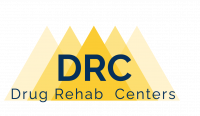The Dangers of Mixing Hydrocodone and Alcohol

Mixing hydrocodone and alcohol is one of the most dangerous forms of substance abuse. Alcohol and prescription drugs are among the most commonly used substances in the United States. It is legally permissible for over-21s to consume alcohol responsibly. Under medical supervision, it is lawful to use opioid pain relievers like hydrocodone with a doctor’s prescription.
Nevertheless, healthcare professionals typically advise against and medication warning labels emphasize the importance of avoiding the simultaneous use of opioid medications like hydrocodone and central nervous system depressants substances like alcohol. Both substances have similar effects on the brain, so mixing alcohol and hydrocodone can amplify intoxication, leading to heightened feelings of euphoria or drunkenness. Simultaneous use of these subatances significantly escalates the risk of overdose and potential fatality.
This guide to hydrocodone and alcohol effects outlines what happens when you mix hydrocodone and alcohol and illustrates why this polysubstance abuse is dangerous and potentially deadly.
Effects of Mixing Hydrocodone and Alcohol
Combining hydrocodone, an opioid painkiller, with alcohol can result in a range of adverse outcomes. The effects of hydrocodone and alcohol combined include:
- Enhanced central nervous system depression: Both hydrocodone and alcohol are central nervous system depressants, which means that they slow down brain activity. When used together, their effects can multiply, potentially causing extreme sedation, dizziness, impaired coordination, and difficulty thinking clearly.
- Respiratory depression: Hydrocodone and alcohol side effects may include significant respiratory depression, where breathing becomes dangerously slow and shallow. In severe cases, it can lead to life-threatening respiratory arrest.
- Increased risk of overdose: Combining these substances raises the risk of opioid overdose, characterized by symptoms like extreme drowsiness, confusion, pinpoint pupils, and, in severe cases, loss of consciousness or death.
- Cardiovascular effects: Mixing hydrocodone and alcohol may also affect heart rate and blood pressure, potentially leading to irregular heart rhythms or other cardiovascular complications.
- Impaired judgment and coordination: Both substances impair judgment, coordination, and motor skills, increasing the likelihood of accidents, falls, and injuries.
- Gastrointestinal distress: The combination can lead to severe nausea, vomiting, and abdominal discomfort.
- Hydrocodone and alcohol liver damage: Alcohol is known for causing liver damage. Many hydrocodone products also contain acetaminophen, a substance also associated with liver complications, especially when taken in higher doses.

Symptoms of Mixing Hydrocodone and Alcohol
If someone has combined hydrocodone and alcohol, they may exhibit various concerning symptoms, including:
- A person may appear excessively drowsy, lethargic, or difficult to rouse.
- Speech may be slow, slurred, or difficult to understand.
- They may experience disorientation, difficulty concentrating, or memory lapses.
- Poor coordination, stumbling, or difficulty walking may be evident.
- Severe gastrointestinal distress, including nausea and vomiting, can occur.
- The pupils of the eyes may become very small (pinpoint), which is a potential sign of opioid intoxication.
- Breathing may be significantly slowed or irregular, which is a critical sign of respiratory depression.
- In severe cases, a person may become unresponsive, unconscious, or in a state of overdose.
If you or someone that you know is experiencing these symptoms after mixing hydrocodone and alcohol, it is a medical emergency. Immediate attention from healthcare professionals or calling emergency services is vital to prevent life-threatening complications or overdose. It is crucial to avoid the simultaneous use of these substances and to heed the warnings and recommendations of healthcare providers and medication labels regarding their safe use.
FAQs
What happens if I mix hydrocodone and alcohol?
Mixing hydrocodone and alcohol can have dangerous consequences as both are central nervous system depressants. It can intensify the sedative effects, impair coordination, and increase the risk of respiratory depression, overdose, and even death.
What should I do if I mixed hydrocodone and alcohol?
If you have accidentally mixed hydrocodone and alcohol, seek immediate medical attention. Contact a healthcare professional or call emergency services, as the combination can lead to severe health risks.
Why can’t you mix painkillers with alcohol?
Combining painkillers like hydrocodone with alcohol is strongly discouraged because both substances suppress the central nervous system. This can lead to slowed breathing, impaired judgment, and increased risk of accidents, overdose, and addiction.
How long should I wait to drink alcohol after taking medicine?
The time you should wait to drink alcohol after taking medicine depends on the specific medication and its interactions with alcohol. Consult with a healthcare provider or pharmacist for guidance on how long to wait before consuming alcohol after taking a particular medication. In many cases, it’s advisable to avoid alcohol while taking prescription medications.

Find Treatment for Hydrocodone & Alcohol Addiction at Drug Rehab Centers
If you have been abusing alcohol and hydrocodone, engage with personalized and evidence-based treatment to streamline your recovery. We can help you access a variety of addiction treatment services in California at Drug Rehab Centers.
Those who have developed physical dependence on alcohol or opioids will benefit from supervised medical detoxification. We can connect you with appropriate facilities throughout the state of California.
Following detox, access one of the following treatment programs depending on your personal needs and the severity of your addiction:
- Inpatient rehab programs (residential rehab)
- Outpatient rehab programs
- IOPs (intensive outpatient programs)
- PHPs (partial hospitalization programs)
To discuss your options and kickstart your recovery from hydrocodone and alcohol addiction, call 844.739.2005 today.
